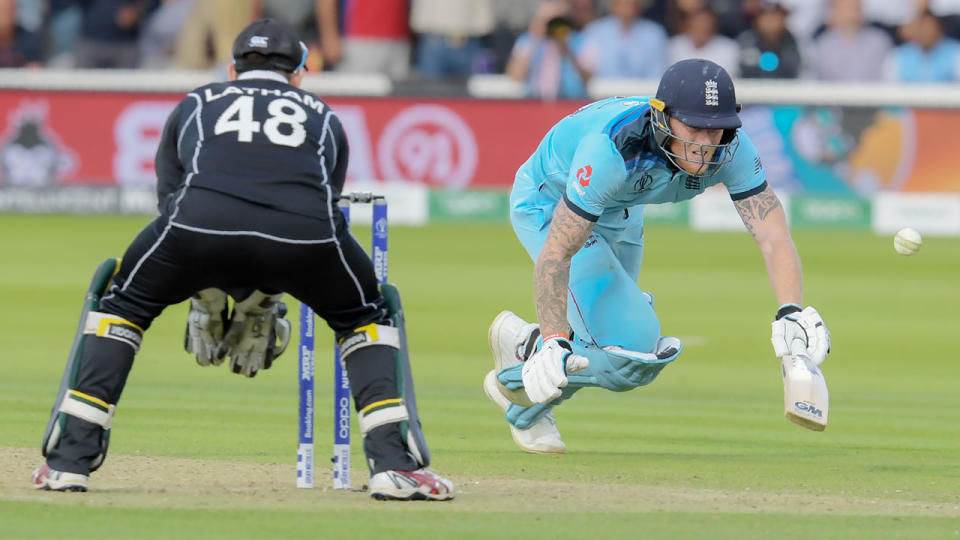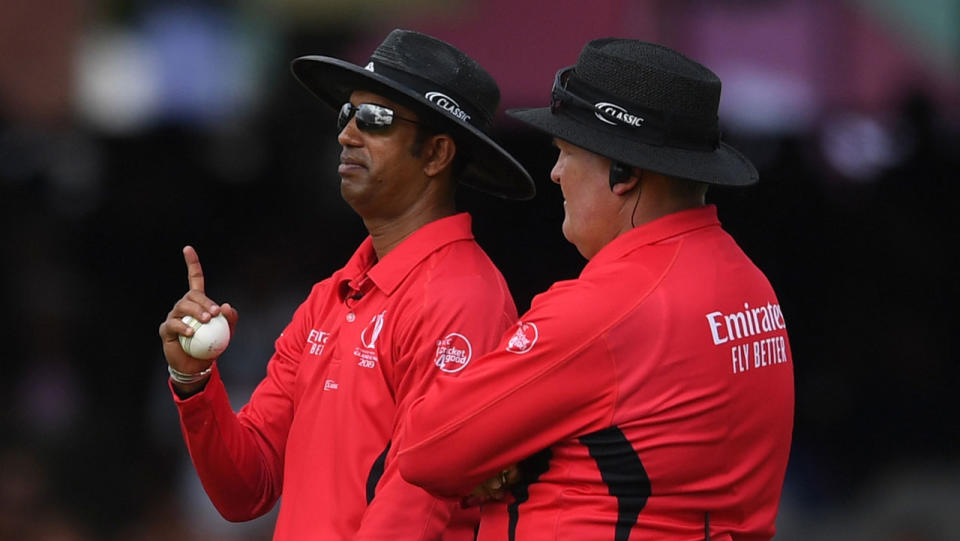'Their interpretations': ICC's bizarre statement on controversial ruling
The ICC has appeared to hint but refused to confirm umpires Kumar Dharmasena and Marais Erasmus misunderstood the rules regarding overthrows at a pivotal moment in the Cricket World Cup final.
Needing nine runs from the final three balls to win the match, England were handed a huge slice of luck when the ball ricocheted off Ben Stokes’ bat while he was running and raced away to the boundary.
Because Stokes was coming back for a second run, the umpires awarded England the two runs plus another four for the overthrows – six in total.
However, that ruling was questioned upon an inspection of the rulebook.
Under Law 19.8, "Overthrow or wilful act of fielder", it appears as though England should only have been awarded five runs, rather than six.
"If the boundary results from an overthrow or from the wilful act of a fielder, the runs scored shall be any runs for penalties awarded to either side, and the allowance for the boundary, and the runs completed by the batsmen, together with the run in progress if they had already crossed at the instant of the throw or act,” the law states.

Decorated former umpire Simon Taufel, who had no official role with the governing body at the tournament, opined that Dharmasena and Erasmus had erred by making a “clear mistake” with a “judgment error”.
But the ICC itself has toed the line to avoid creating added drama following England’s victory on a countback.
“The umpires take decisions in the field of play with their interpretations of the rules,” an ICC spokesperson said.
“We don’t comment on any decisions as a matter of policy.”
While the wording and other documents suggest Dharmasena and Erasmus may indeed have misunderstood the law, the ICC appears set to move on from the incident.
How Simon Taufel saw it
“There was a judgment error on the overthrow. The judgment error was the timing of when the fielder threw the ball,” he told The Age.
“The act of the overthrow starts when the fielder releases the ball. That's the act (mentioned in the rule). It becomes an overthrow from the instant of the throw."
The umpires convened for a long period of time before play resumed after six runs had been added to England’s total.

Taufel, who said the mistake should not be seen to have decided the World Cup, acknowledged the difficulties of officiating after such a rare event.
“What's unfortunate is that people think that umpiring is just about outs and not outs. They forget we make 1000s of decisions every match,” he said.
"So it's unfortunate that there was a judgment error on the timing of the release of the ball and where the batsmen were. They did not cross on their second run, at the instant of the throw.
“So given that scenario, five runs should have been the correct allocation of runs, and Ben Stokes should have been at the non-striker's end for the next delivery.
“We're not perfect. You've got the best two umpires in the elite panel doing the final. They're doing their best like the other two teams are. This is just part of the game.”
So, although Law 19.8 regarding overthrows could potentially be interpreted two ways, this is from the E-Learning part of the MCC's Laws page, intended to help you interpret the laws. And I can't see any ambiguity here. It should have been 5 runs, not 6. pic.twitter.com/qM52xW76qm
— Brydon Coverdale (@brydoncoverdale) July 15, 2019